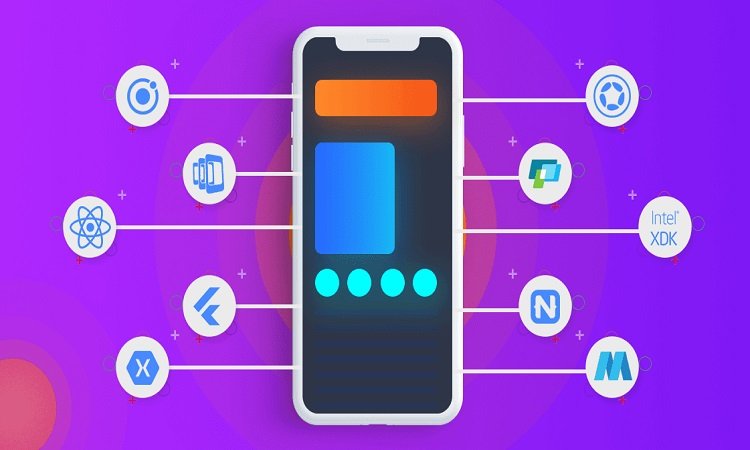In this article, we will first develop a clear understanding of Native Mobile Applications, followed by its utilization (briefly), and finally, its benefits for i) Businesses ii) Consumers.
5 Benefits of Native Mobile App Development
Native Mobile Applications
As the name suggests, these applications are native to the operating system for which they have been designed, which means they behave more like an innate or integral part of the operating system and the device.
A native app is rich in design and features, while the hybrid apps are surficial and lack the depth. Please keep reading to know more about Native Mobile App Development and its benefits.
Native Mobile App—A Win-Win tool
Why do we regard the Native Mobile app as a win-win tool?
Because when taken into consideration the Business viewpoint, it serves the purpose well. Since Native Apps are integral in the design, user interface, features, and are free of bugs, you can easily keep track of the monetization and consumers’ preferences.
While on the other hand (the consumer’s end), it is not only readily acceptable but also the most preferred design architecture because it blends with the device’s functionality just like a native citizen in his/her hometown.
Why go for Native Mobile App Development?
There are many benefits of choosing the Native Mobile App Development compared to the other App Development architectures.
Some of the benefits are discussed below,
- Superior Performance
These apps save you a lot of time and hustle by becoming an integral part of your device right after their installation on the device. Native apps can perform at the most optimum level by squeezing every bit of the device’s functionality. Native Mobile Apps are Platform-Specific and thus do not require a generic API. WhatsApp and Facebook are the two big examples of Native Mobile Apps. Whether a user has an Android phone or an Apple (iOS), they must have used either of the two or mostly both of the apps mentioned above, and anyone can tell that these apps feel like the built-in apps of the device because of their superior performance and native touch.
- Better User Interaction
Having the leverage of using almost all of a device’s integral parts, processing, and functionality, Native Mobile Apps have a much more smooth flow of interaction with its user than other models. They can produce more natural and pleasing in-app animations while maintaining the user experience at par. Native apps are inbound by specific standards of higher quality.
- Added Security
When a business chooses its commercial application’s architecture, it is essential to understand the long term benefits of choosing the Native Mobile App Development. Yes, it brings along much safer and secure ways of transactions and monetization. While on the consumer’s end, security is also very crucial. A user will never want to use WhatsApp if he/she knows that it can leak his messages. That is where Native Apps come; they can offer various security features like ‘end to end encryption’ in messaging.
Users’ privacy and security are jeopardised by insecure Android apps. Furthermore, such apps might lead to financial losses. This is mostly due to the Android ecosystem’s openness. Android penetration testing is one of the most effective approaches to increase the security of an android app. It is a method of detecting security flaws in an Android application. It’s a method for systematically looking for flaws in an Android app and certifying its security.
- Convenient for Developers
Native mobile applications are not only a pleasing experience for enterprises and consumers but also for the developers. Even on the developer’s end, these apps provide the comfort and convenience of designing bug-free applications. Once again, we will consider WhatsApp as an example to understand what is being discussed here. A reputable app development company will always advise going for a native app.
How many times does WhatsApp crash?
Almost no one can claim that they were using WhatsApp for messaging, and suddenly the application shutdown. Why? Because of the blending of the application with the device’s performance as a native (integral part).
Which means that there are almost zero bugs in a native mobile app. This also means that it is much convenient for the developer to work on it.
- Maximum utilization of a device’s functionality
By possessing a natural flow and capability to acquire maximum/optimum performance, the Native mobile app is always a step ahead in its game. When a Hybrid app is launched, it can take multiple instances of memory and take longer to start while using a Hybrid app; there may be some lagging issues.
But when it comes to the Native Apps, their architecture is integrated with the device’s API so that once loaded feature of an app will load much faster the next time by allocating its required chunk in the device’s memory and swiftly loading again.
Final Thoughts | 5 Benefits of Native Mobile App Development
This article enlists only a few benefits of native Mobile Application Development, and that also seems enough to select this architecture for a business to increase ROI. We also saw that in Native Applications, Consumer’s experience is very comfortable and provides more chances of increased usage.
